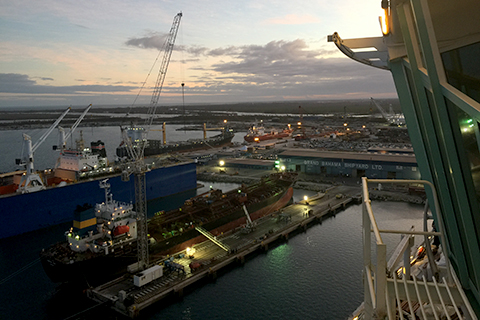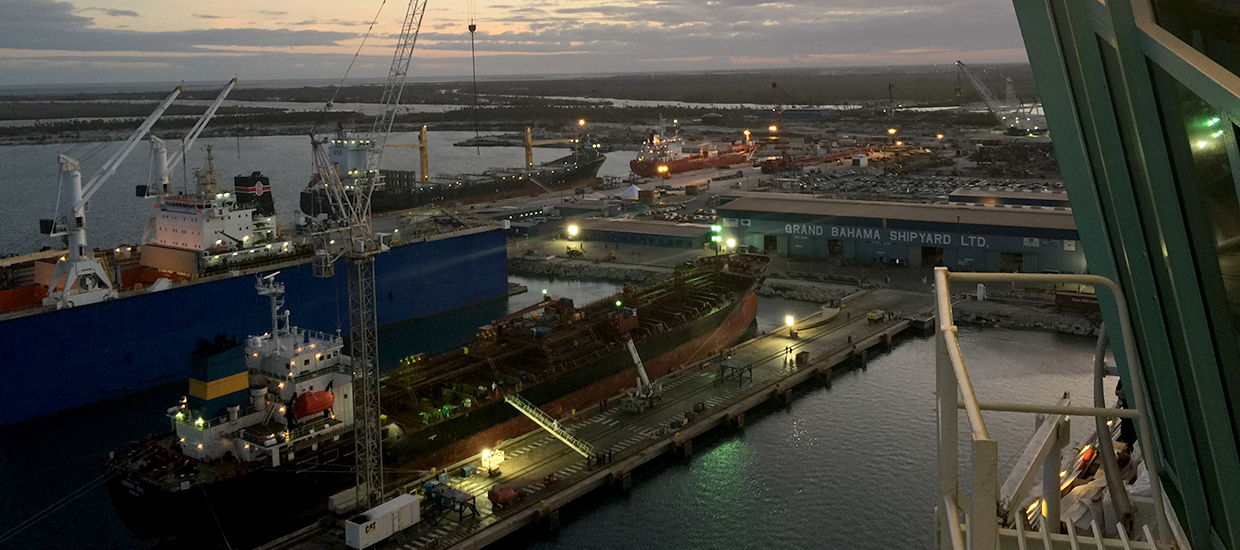With funds provided by Royal Caribbean Cruises, we began to develop autonomous remotely controllable systems. These next-generation systems run for many months at a time without operator interaction delivering data automatically to both the shore side scientific community (and where relevant) to ship operators concerned with attaining maximal fuel economy. This next-generation system we called AMOS (Automated Meteorological and Oceanographic System) is now installed upon two additional RCCL vessels (the RCL Allure of the Seas and the Celebrity's Equinox). At the same time both M-AERI measuring satellite comparable sea surface temperatures and ADCP’s measuring current have received next generation upgrades. In spring 2015, the pilot systems aboard the Explorer of the Seas will be renewed and upgraded for installation upon another RCL ship when Explorer of the Seas is refurbished and relocated to the Far East.
This transformation, and the growing recognition of the data obtainable from commercial vessels in regular transit is invaluable, and has generated an international response, known as OceanScope. The OceanScope program is envisioned as a fleet of commercial vessels with automated instrumentation spanning the global ocean and serving as “satellites of the sea.” The report of the international group proposing OceanScope is located where. OceanScopeis very much the “legacy” of the UM-RCCL collaboration and with its implementation, the UM-RCCL collaboration is expected to continue to serve as technology test-beds over the coming years.





